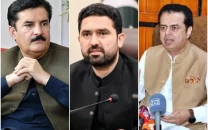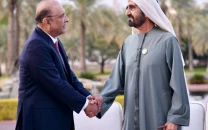Beyond a talking shop

Beyond a talking shop
Two and a half decades later there is huge potential in the region for close economic cooperation intended to foster social progress, as laid out in the Saarc declaration, but there has been a failure to move towards these goals. This is one reason why, tragically, levels of hunger in some parts of South Asia are rated by international humanitarian groups to be at levels equivalent to those seen in sub-Saharan Africa. Statistics published annually by UN bodies also show – in most Saarc nations – dismal figures for child mortality, literacy and access to healthcare.
As the organisation moves into its 25th year of existence and heads of nations meet in Bhutan, there is a need to assess the reasons for this. Through the years we have seen acrimony between various nations forming the body. But the continued unease between India and Pakistan is perhaps the key factor in holding up more rapid progress. That is all the more reason why the two countries need to put their past behind them. By doing so, they will stand to benefit not only their own citizens but also those of South Asia as a whole. That also means that Saarc needs to move beyond being a mere talking shop — which it unfortunately is at present.



















COMMENTS
Comments are moderated and generally will be posted if they are on-topic and not abusive.
For more information, please see our Comments FAQ